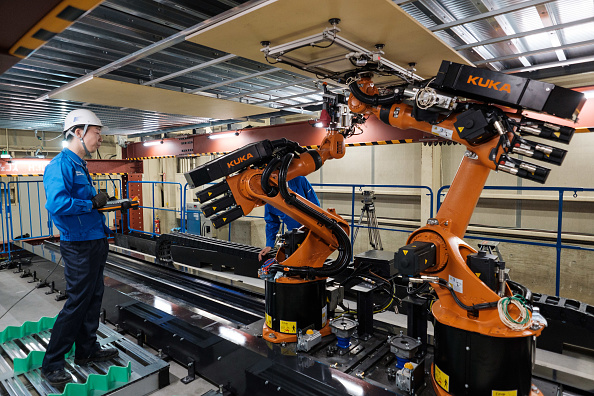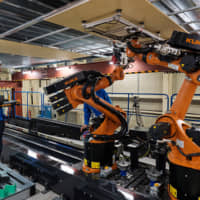Core private-sector machinery orders fell 2.9 percent in September, declining for the third month in a row and prompting the government to downgrade its assessment, Cabinet Office data showed Monday.
Total orders fell 18.7 percent to ¥2.14 trillion, largely due to a significant drop in overseas demand.
Anchored by sluggish demand in the nonferrous metals sector, orders excluding ships and from power utilities due to volatility totaled ¥850.19 billion ($7.8 billion).
This prompted the Cabinet Office to downgrade its view of machinery orders — a leading indicator of capital expenditures — for the first time since December 2018, saying they are "showing signs of stalling in their recovery."
Until August, it had said orders were "showing signs of picking up."
"The upward trend we had seen from this spring has been slightly falling (in the last three months) so we downgraded the assessment," a government official told reporters.
In the reporting month, orders from manufacturers fell 5.2 percent to ¥360.38 billion, due partly to weak demand for computers and nuclear power-related equipment from the nonferrous metals sector, and railway cars from the transport machinery sector excluding automobiles.
Demand from nonmanufacturers, minus orders for ships and those from power companies, rose 2.6 percent to ¥489.82 billion, buoyed by appetite for computers from the information and communications sector.
Overseas orders, seen as an indicator of future exports, fell 12.6 percent to ¥852.95 billion, prompted by a slump in demand for motors and industrial machinery.
No rush to beat the Oct. 1 consumption tax hike to 10 percent from 8 percent was seen in the reporting month, the official said.




